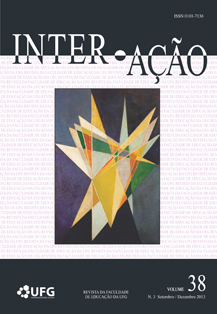EDUCAR SEM CORRIMÕES? A FORMAÇÃO EM TEMPOS DE RUPTURA COM A TRADIÇÃO
DOI:
https://doi.org/10.5216/ia.v38i3.19498Keywords:
formação, mundo comum, pensamento sem corrimão, vita activaAbstract
O trabalho procura interpretar o pensamento de Hannah Arendt, como elo hermenêutico de compreensão da formação, diante do diagnóstico moderno de crise na educação e de ruptura com a tradição. A perda do mundo comum, com a diluição entre a esfera pública e a esfera privada e a não separação entre o mundo dos adultos e o mundo das crianças, resultou em contornos limitados no campo da formação. Sob esse horizonte pergunta-se: essas conquistas, que são caras à modernidade, podem ser reforçadas por um pensamento que busca conservar a tradição? Nesse intento, busca-se recuperar algumas reflexões extraídas de sua obra, concentrando-se na interpretação da proposta de conservação à luz da metáfora do “pensamento sem corrimão”. Ao localizar na tradição elementos da vita activa torna-se possível renovar a ideia do mundo comum, o que (re)acende o diálogo entre a Filosofia e a Educação em um horizonte profícuo.
Downloads
Downloads
Published
How to Cite
Issue
Section
License
Inter-Ação uses the Creative Commons Attribution 4.0 License for Open Access Journals (Open Archives Initiative - OAI) as the basis for the transfer of rights. Open access means making documents available on the Internet free of charge, so that users can read, download, copy, distribute, print, search, or link to the full text of documents, process them for indexing, use them as input data for software programs, or use them for any other lawful purpose, without financial, legal, or technical barriers.
Authors publishing in this journal agree to the following conditions:
1) Authors retain copyright and grant the journal the right of first publication, with the work simultaneously licensed under the Creative Commons Attribution License, which permits redistribution of the work with attribution and first publication in this journal.
2) Authors are permitted to enter into additional, separate agreements for non-exclusive distribution of the version of the work published in this journal (e.g., for publication in an institutional repository or as a book chapter), with attribution and first publication in this journal.
3) Authors are permitted and encouraged to publish and distribute their work online (e.g. in institutional repositories or on their home page) at any time before or during the editorial process, as this may generate productive changes as well as increase the impact and citation of the published work.















